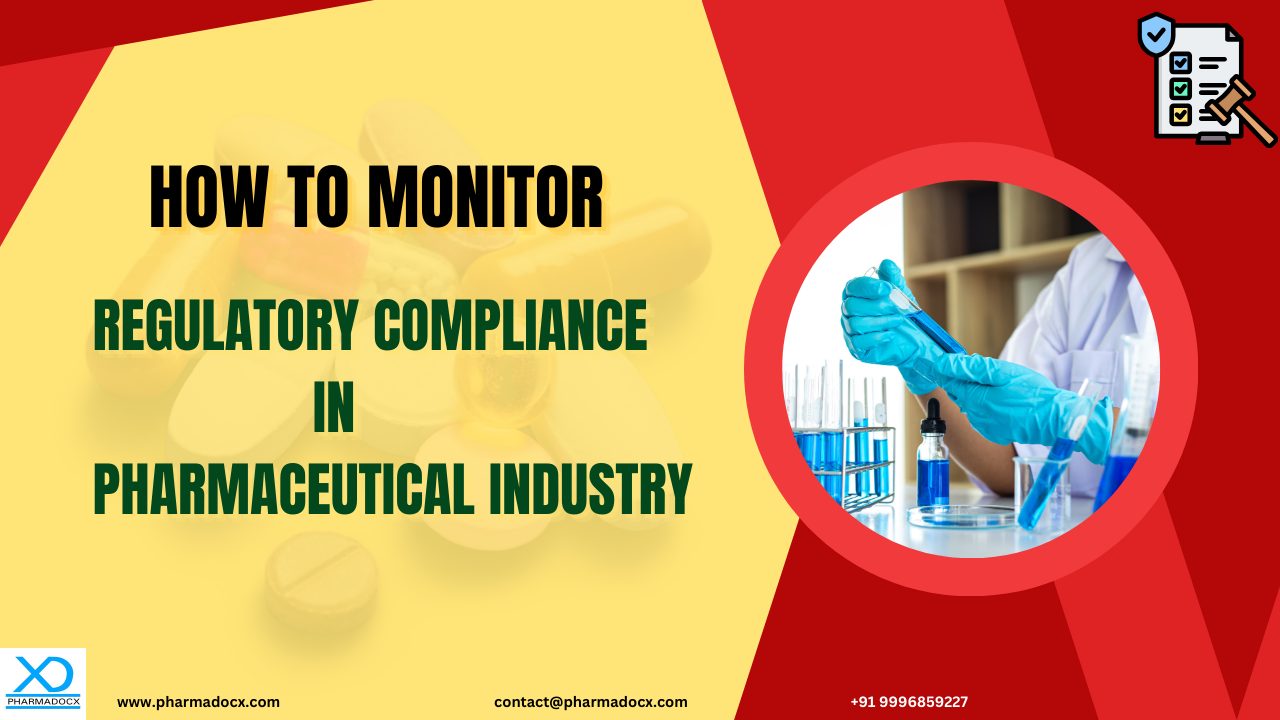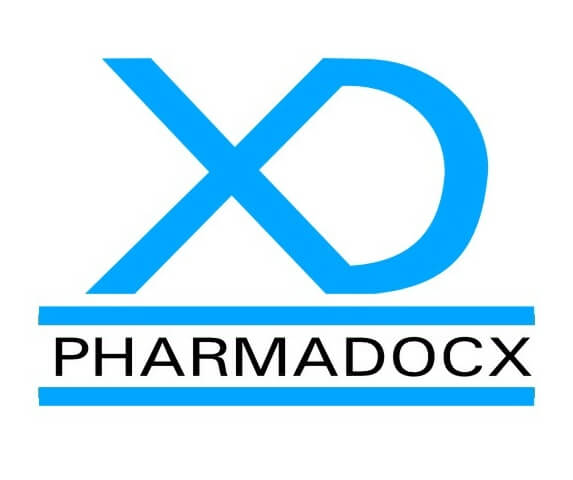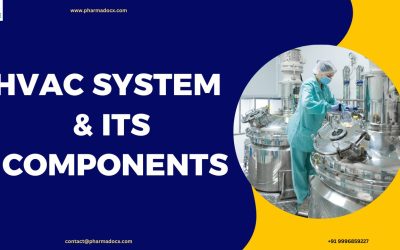Regulatory compliance in pharmaceutical industry is complex yet vital for ensuring the safety, efficacy, and quality of drugs. Compliance with these regulations is not just a legal obligation but also necessary for protecting public health and fostering innovation. Thus, whether the pharma company is abiding by all the regulations has to be carefully monitored. Regulatory compliance monitoring system in pharma industry will encompass R&D, manufacturing, and post-market surveillance.
Understanding pharmaceutical industry regulatory compliance
To ensure patient safety, the pharma industry is highly regulated. Regulatory guidelines are in place for all aspects in the pharma sector from drug development to manufacturing and even marketing. The aim of these guidelines is to ensure the efficacy, safety, and quality of drugs being provided to the public. Government regulatory bodies, such as the U.S. Food and Drug Administration (FDA), Central Drugs Standard Control Organisation (CDSCO), and others, set the guidelines and monitor compliance.
Regulatory compliance in pharmaceutical industry is compliance with regulatory laws, guidelines, and specifications pertaining to aforementioned aspects in pharma sector. Notably, it is not just the manufactured drug that has to comply with the regulatory guidelines. The drug development process, formulations, and manufacturing process, environment and facility have to be compliant with the regulatory guidelines. Additionally, drug marketing and post-market surveillance will also have to be compliant.
The need for regulatory compliance in pharmaceutical industry
Pharmaceutical industry regulatory compliance is required for consistency in the quality, efficacy, and safety of the manufactured drugs. Proper implementation of regulations and adherence to quality benchmark are vital for enhanced patient outcome and protection of public health. Furthermore, regulatory compliance is mandatory to obtain the drug manufacturing license. Thus, you need to meet certain quality thresholds to manufacture drugs.
The importance and need for complying with regulations are as follows:
- Consistent high drug quality standards: Regulatory compliance translates to quality assurance. The primary goal of the regulation is that the pharmaceuticals should be consistently manufactured according to the highest quality standards. All aspects of drug manufacturing from raw materials, premises, and equipment to staff training and hygiene should comply with regulations.
- Improvement, innovation, and trust: Regulations promote research and innovation in the pharma industry while ensuring quality and safety are maintained. The guidelines ensure the patients and medical professionals continue to trust the pharmaceutical sector. By meeting the strict regulatory standards, pharma companies can develop safe and effective drugs. Consumers, healthcare providers, and investors will trust regulation abiding companies which in turn fosters innovation in the pharmaceutical industry.
- Protecting public health: The regulatory guidelines are aimed at ensuring public safety and safeguarding public health. Thus, regulatory compliance in pharmaceutical industry will ensure drugs being manufactured are safe for consumption and effective for intended use. Rigorous testing and evaluation processes form the backbone of drug manufacturing regulatory requirements. Thus, the goal is drugs being marketed will not have adverse effects and will have therapeutic benefits.
- Improved company reputation: A pharma company that complies with all the regulatory guidelines demonstrates its commitment to patient safety. Thus, regulatory compliance improves the reputation of the company in the pharma industry.
Hence, a full proof monitoring system will be required to ensure the regulations are being effectively implemented. Monitoring regulatory compliance in pharmaceutical industry is a must to identify and correct non-compliance at any stage.
Challenges in ensuring pharmaceutical industry regulatory compliance
Extensive regulations and requirements, ever-evolving standards, and changing market dynamics are some of the challenges faced by pharma companies.
- Regulatory guidelines for the pharma industry are very complex and varies from product to product and region to region. Thus, extensive knowledge of local regulations, guidelines, and application procedures is required to navigate the pharma industry regulatory maze.
- Increase in scrutiny, monitoring, and expectations of regulatory authorities further add to the already challenging regulatory landscape.
- The pharma industry is rapidly evolving. There is constant technological advancement and innovation in various domains of pharma. Pharma companies find it hard to keep pace with the changes in regulatory requirements with the changes in the pharma domain. Companies will have to constantly update themselves with the new regulatory requirements for the newly innovated drugs.
- Stringent requirements are in place for quality control, data integrity, and documentation. These add further layers of complexity to regulatory compliance. Furthermore, transparent reporting and in-depth risk management system are some of the additional challenging requirements.
Thus, a proactive approach and a culture of compliance throughout the organization are necessary. Pharma companies need to invest in robust quality management systems and processes to effectively address the challenges in regulatory affairs. These challenges highlight why monitoring regulatory compliance in pharmaceutical industry is a necessity to survive in the dynamic pharmaceutical landscape.
Why is it necessary to constantly monitor regulatory compliance in pharmaceutical industry?
A pharma company should comply with industry regulations not just to avoid legal issues. The main aim is product quality, safety, and efficacy, which are critical for patient safety and outcome. Good manufacturing practices and other regulatory guidelines are in place for improving the healthcare industry. By complying with the regulatory guidelines, pharma companies can ensure that their manufactured pharmaceutical products are safe for the consumers. Thus, pharma companies should focus on monitoring regulatory compliance.
- Safeguarding and protecting patients: The main goal of regulations and guidelines is to prevent substandard and ineffective medicines from entering the pharma market. Thus, pharma companies must monitor regulatory compliance to deliver high-quality medicines, thereby safeguarding and protecting patients.
- Avoiding product recalls: Companies have to closely monitor the effectiveness of implementation of regulatory guidelines in their daily activity and processes. This is because the inability to meet regulatory standards can lead to product recalls. Product recall is not only a hassle but also can tarnish the reputation of the company.
- Saving time, resources, and money: While monitoring regulatory compliance, the company can identify all non-conformities and regulatory shortcomings. The company can correct the identified gaps in regulatory compliance before the product is released in the market. Thus, the company can save resources used to handle product recalls and avoid fines imposed for non-compliance. Additionally, monitoring regulatory compliance in pharmaceutical industry will help companies find areas of improvement. This will help the company promote efficiency and reduce drug manufacturing costs. Thus, the monitoring system will not only help with facilitating regulatory compliance but also save time, resources, and money.
- Maintaining drug quality: By monitoring regulatory compliance, pharma companies can ensure they are consistently manufacturing high quality and effective drugs.
The above reasons are why every pharma company needs a robust regulatory compliance monitoring system.
6 key steps for monitoring regulatory compliance in a pharma company
- A robust compliance monitoring system is required to monitor compliance with regulatory guidelines. This will be required to keep track of changes in regulations and ensure compliance with all relevant and latest guidelines. It is crucial the company stays updated with the constantly changing regulatory requirements
- Regularly conduct audits to identify non-conformities and areas of improvements.
- Conduct employee training programs. Employees should be educated on the importance of regulatory compliance and updated with the latest guidelines.
- A person with expertise in relevant rules and regulations should be in charge of monitoring regulatory compliance.
- Once non-compliance has been identified, corrective actions should be implemented as soon as possible. Also, whether the corrective action has been effective should be evaluated.
- Company policies and procedures should be in line with regulatory guidelines.
Pharmaceutical industry regulatory compliance: A mandatory requirement
In this blog, we have presented the need for monitoring regulatory compliance in pharmaceutical industry. Additionally, we have provided some tips on how your pharma company can monitor regulatory compliance. With over 27 years of experience, we at Pharmadocx Consultants have in depth knowledge of the pharmaceutical industry regulatory requirements. We will leverage our expertise in this field to help you ensure regulatory compliance. Drop an email at [email protected] or call/Whatsapp on 9996859227 and we will help you.





